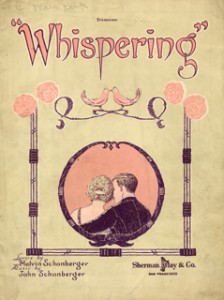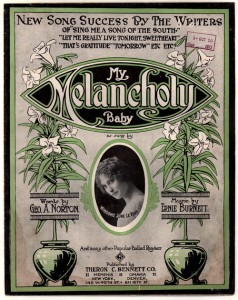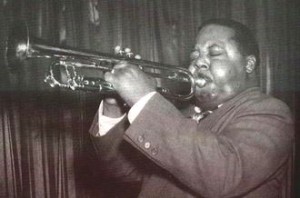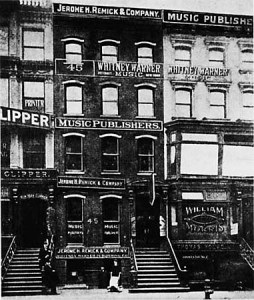It's hard to catch 'lightning in a bottle'—but sometimes it happens. You write a song, a well-crafted composition that captures the public's imagination, and it becomes one of the best-loved tunes in American music. And then, lightning doesn’t strike twice.
These 'One Hit Wonders' of songwriting were bandleaders, or horn players, or even the occasional 'nobody from nowhere.' Regardless of who they were, they captured the spirit and soul of America in one big hit song and were never heard from again.
We still hear their songs on movie sound tracks, TV commercials, sing-alongs around a campfire or in late night jam sessions. But the songwriter is long forgotten. The common thread these 'One Hit Wonders' of song all share is that jazz musicians discovered them and made them jazz standards.
Songwriter Richard Coburn made a career out of writing 'forgettable' pieces for the vaudeville stage. Fate played a heavy hand in his success. Bandleader Paul Whiteman used Coburn's "Whispering" on his first recording session in 1920. It made Paul Whiteman a star and put Richard Coburn on the map. Other 'One Hit Wonders' relied more on talent than luck for their success.

"Whispering" sheet music, San Francisco: Sherman, Clay & Co., 1920. Image from Cunningham Memorial Library, Indiana State University.
A musical gold rush was on in turn-of-the-century New York. The story goes that a newspaper writer coined the term 'Tin Pan Alley' in the early 1900s. Standing on 28th street in Manhattan, between Fifth Avenue and Broadway, he heard the clatter of hundreds of songwriters pounding away on pianos in nearby publishing houses. It sounded as if they were beating on tin pans, and the name 'Tin Pan Alley' stuck. This songwriting 'industrial zone' turned out massive quantities of 'product'—new songs in hot demand for vaudeville shows, sheet music sales, Broadway musicals and bawdy revues in bowery dives.
Hardworking songwriters of the 'alley' sometimes broke through with a hit. Ernie Burnett produced "My Melancholy Baby" in 1912, and John Raymond Hubbell composed the music for "Poor Butterfly" in 1916, inspired by Puccini's opera Madame Butterfly.
Songwriting bandleaders and musicians produced some of our most enduring hit songs and jazz favorites. "Sweet Lorraine" was the only hit composed by jazz pianist Clifford Burwell, but it was recorded many times by Benny Goodman, Teddy Wilson and Nat King Cole. And Charlie Shavers, the great jazz trumpet man with the John Kirby Orchestra on New York's 52nd Street scene, wrote his 1939 hit "Undecided," a tune that became a Swing Era classic and is a favorite today.
This week on Riverwalk Jazz The Jim Cullum Jazz Band and their guests: sax man Harry Allen, piano legend Dick Hyman, and clarinetists Chuck Hedges and Alan Vaché salute the 'One Hit Wonders' of the Golden Era of song.
Our show is inspired by the recent Scarecrow Press publication, The Unsung Songwriters: America’s Masters of Melody, a book written by Warren W. Vaché Sr., father of cornetist Warren Jr. and former Jim Cullum Jazz Band clarinetist Allan Vaché.
Photo credit for Home Page: Tin Pan Alley, 1914. Photo in public domain.
Text based on Riverwalk Jazz script by Margaret Moos Pick ©2012




